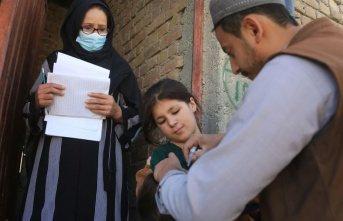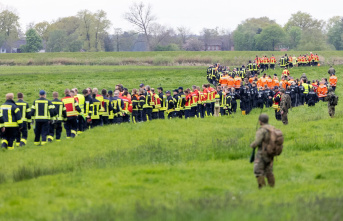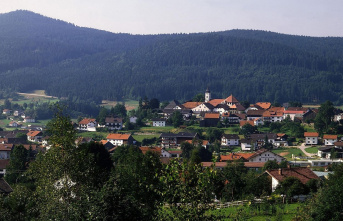The nationwide traffic strike that started at midnight hit the north far less than neighboring Hamburg on Monday. Above all, the citizens of Schleswig-Holstein have to adjust to obstructions in rail traffic. It will be particularly difficult for residents of the commuter belt in the north of Hamburg, since the Hanseatic city's S-Bahn trains do not run. Visitors and residents of the island of Sylt also need patience. According to the railways, no Sylt Shuttle is expected to run until the afternoon. The Verdi union also wants to block the Kiel Canal. The lock gates in Kiel and Brunsbüttel should remain closed.
Rail:
The railway and transport union (EVG) strikes long-distance, regional and S-Bahn traffic. Long-distance traffic is completely discontinued, regional traffic is largely discontinued. According to Bahn, emergency timetables are not possible. Effects should be felt since Sunday evening and on Tuesday. According to Bahn, passengers who have booked a train journey for Monday or Tuesday can use the ticket flexibly until April 4th. Seat reservations could be canceled free of charge.
Airports:
The German airports are largely on strike by the Verdi union. According to the airport association ADV, 380,000 business and private travelers have to stay on the ground. The capital's airport BER should not be affected, but the largest airport in Frankfurt or Munich Airport, which ceased operations on Sunday. According to the aviation industry, this will also make preparations for Easter travel more difficult.
local transport:
Local transport is to be struck again in all federal states that are directly linked to the collective agreement for the public sector. These are Baden-Württemberg, Hesse, Lower Saxony, North Rhine-Westphalia, Rhineland-Palatinate and Saxony. There should also be a strike in Bavaria, where a collective agreement for local transport is being negotiated. It was said from several countries that schoolchildren could stay at home if they could not come to school because of the warning strike.
Strike day at the start of the third wage round:
With the warning strikes, Verdi and EVG want to increase the pressure in their current collective bargaining rounds. Under tense circumstances, Verdi and the civil servants' association dbb will meet the municipalities and the federal government again on Monday in Potsdam. This is where the third round of negotiations for 2.5 million workers begins. Both sides are still far from each other, but an agreement in the days that follow cannot be ruled out.
Other collective bargaining:
What is special about the day of the strike is the interweaving of various collective bargaining agreements. At the EVG, there are further talks with the various railway companies from the middle of the week. Negotiations with Deutsche Bahn should only continue after Easter. According to Verdi, the round for public service at the airports is affected because of the municipal employees, but also local negotiations for ground handling services and nationwide talks for aviation security. The coordinated approach met with severe criticism from employers - the strikes for the population were no longer recognizable as a pure warning strike.
Verdi on the round of collective bargaining The civil servants' association dbb on the round of collective bargaining Press folder BMI VKA on the round of collective bargaining EVG on the round of collective bargaining











